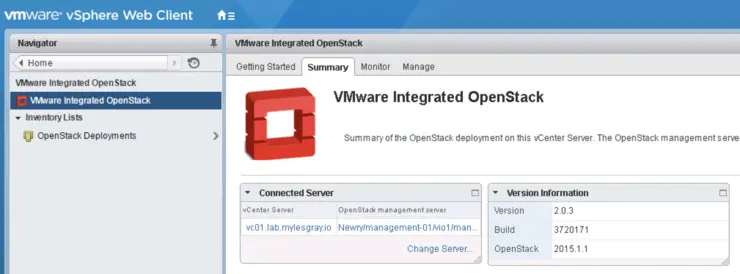I’ve been playing around with VMware Integrated Openstack recently and wanted to see what the upgrade experience for bugfixes and point releases is like, happy to say - it’s quite easy.
Firstly, download the .deb package from my.vmware.com and upload it to the VIO management appliance - I used FileZilla for this, the username is viouser and password is what you set during OVF deploy.
I just uploaded mine to the viouser home folder /home/viouser/

Next, SSH into the VIO management appliance and import the patch:
viopatch add -l vio-patch-203_2.0.3.3720171_all.deb
Then to show the patch is listed:
viouser@vio1:~$ viopatch list
Name Version Type Installed
------------- ------------- ------ -----------
vio-patch-203 2.0.3.3720171 infra No
Now, we’re going to install the patch:
sudo viopatch install --patch vio-patch-203 --version 2.0.3.3720171
This process took around 15 minutes in my case, the API endpoint will be down for the duration so any replies will be with Error 503.
I opened another SSH session during the install and ran top to monitor progress, you will see the CPU utilisation cycle through Java and Ansible as it deploys to the cluster itself.

And that’s it, if you see the following you’re good to go:
viouser@vio1:~$ sudo viopatch install --patch vio-patch-203 --version 2.0.3.3720171
[sudo] password for viouser:
Installing patch vio-patch-203 version 2.0.3.3720171
done
Installation complete for patch vio-patch-203 version 2.0.3.3720171
Log out of the Web Client and back in and verify that you’re now operating at 2.0.3:

Why not follow @mylesagray on Twitter ↗ for more like this!
